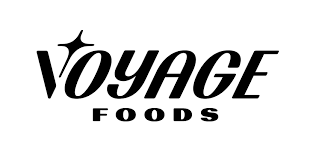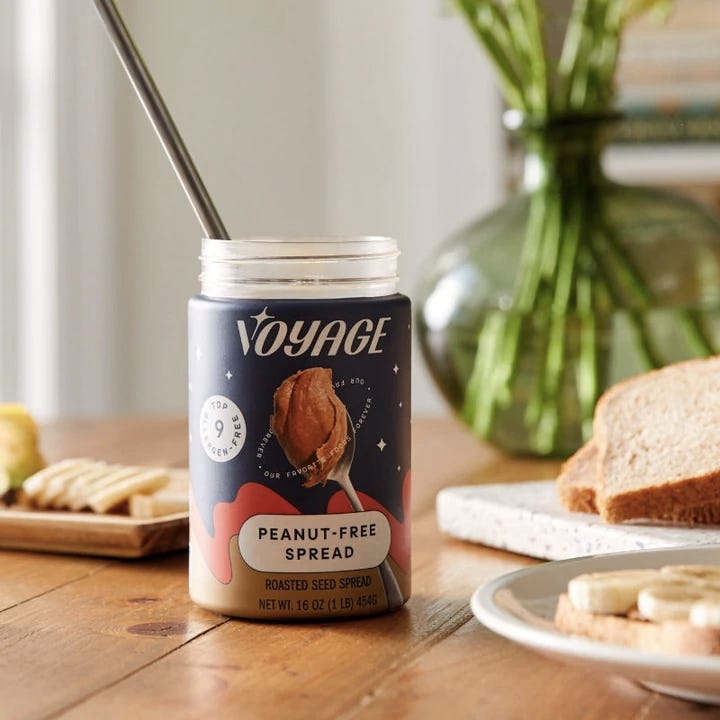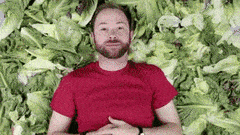Change this one setting at your home
And you'll save tons of carbon (and money)
90% of the energy in the washing machine goes towards heating water.
So before you wash your clothes next time, change this one setting.
Set the temperature to cold.
It would bring down the energy requirements and cost.
Your clothes would thank you.
And so would the planet.
Do you wash your clothes in cold water?
For this week, I have a mixed bag of startups that are building something sustainable in the world of food.
Cosmetic reasons…Next time you go to a supermarket, look carefully at the produce. You would mostly see perfectly shaped and shiny fruits and vegetables. We are so driven by aesthetics that supermarkets don’t sell any ‘ugly’ produce. All of this rejected produce ends up in a landfill. This contributes to the food waste problem- a leading cause of climate change.
Selling all shapes and sizes… Full Harvest has created an online tech platform to solve this problem. It allows producers that have the ‘ugly’ or ‘surplus’ produce to connect with potential buyers- online retailers, restaurants, cafes, and juice bars. It started in 2016 and since then has saved millions of kilograms of CO2 emissions and billions of gallons of water.
Sellers have to list their produce on Full Harvest’s platform with details like quantity and photos.
Buyers can directly place the order on the platform.
Full Harvest takes care of end-to-end logistics and manages everything in between.
Savings all around…By being able to reduce their waste, sellers can improve their bottom line. At the same time, buyers get the product at a 10-30% discount. This saving in turn reaches the customers- making food more affordable for them.
Unstable…In today’s world, it’s not unusual that we might stop getting our favourite food tomorrow. Our supply chains are global and factors like climate change or humanitarian crises can disrupt them. Cocoa, a key ingredient of chocolate, is a great example. The cocoa-growing regions don’t have the ideal temperatures anymore and that is impacting the supply of chocolate.
Reverse Engineering…Voyage Foods is trying to mitigate all of these risks and ensuring that we keep getting our favourite food. It’s doing that by reverse engineering. It started by researching the baseline molecules that makeup products like chocolate, peanut butter and coffee. It found those molecules in other food, mixed them with some ingredients and produced the real goods.
It has been in the R&D mode till now and would soon start commercializing.
As its packaging needs are different, it has set up its own packaging facility.
It also plans to just sell its ingredients to food manufacturers, jumping into a B2B model.
Food Allergies…Another problem that Voyage is solving is that of food allergy. An increasing number of people are becoming allergic to commonly used ingredients like peanuts. Having products like Peanut Free spread around would make life easier for them.
UK imports 45% of its vegetables…a vast majority of it comes from the EU. During the winter months, when Britain cannot grow its own produce, it imports 90% of the lettuce consumed. For tomatoes and fresh fruits, this goes up to 95%. During COVID, thousands of iceberg lettuces were duly shipped to the UK from Los Angeles!
Localized indoor farms are a great alternative…but they can’t compete with the scale of traditional agriculture. And that’s where agritech startup LettUs Grow comes in. It improves the efficiency, sustainability and ROI of indoor farming by combining a novel aeroponic system (growing plants without soil) with farm management software,
Crops are grown using water-conserving, nutrient-dense mists instead of soil.
These farms don’t need any fertile land and don’t use any pesticides.
The farm management software allows farmers to trace the crops from seed to scale.
No fertile land is needed to grow crops… and that reduces the dependency of crops on external factors like location and climate. Using this technology, indoor farms can grow consistent, predictable and climate-resilient food supply throughout the year. If scaled efficiently, the technology will solve food wastage and sustainability concerns.
🙋Trivia of the week
The UK is hoping to meet the target of net-zero emissions by 2050.
According to a new report by the Social Market Foundation (SMF), a think tank, reducing the emissions from homes is “critical” to meeting this target. This would involve modifications to millions of homes, including a switch from gas boilers to lower-carbon heat pumps.
As a result, SMF said there needed to be a recruitment campaign that pitched X professionals as “vital in achieving net-zero” - as Climate Heroes to ensure enough people were entering the profession at this crucial time.
Which profession are they referring to?
Thanks for reading today’s edition. If you liked it, please share it with your network.
Have a good weekend and see you next week👋












Yes, I've been washing with cold water for many years now. It allows me to optimize and wash whites and brights together and also it keeps all clothes in a good shape for longer.
is the answer...plumbing?
Btw, the last startup is amazing! The soil is losing its fertility due to pollution and chemical fertilizers. So, hopefully these kind of startups spread over the world!!